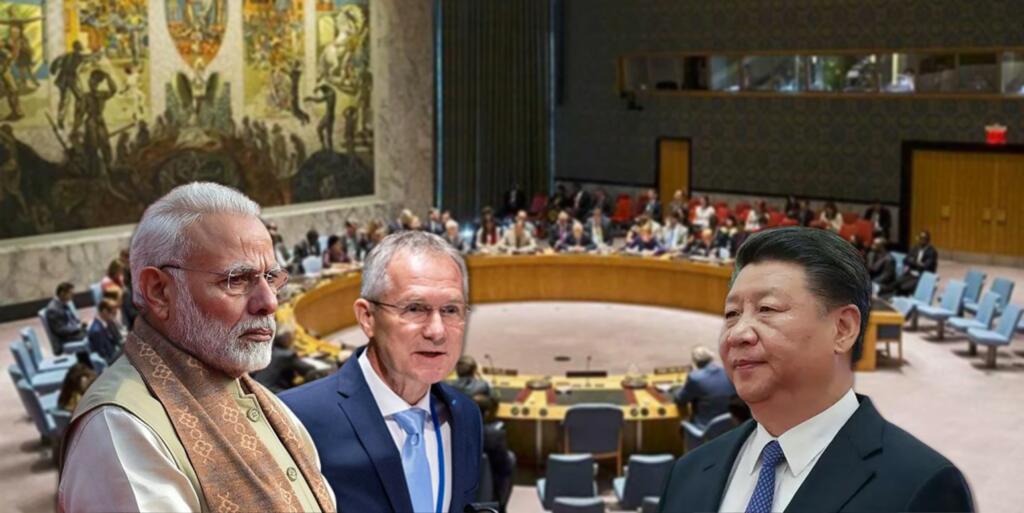The shift in power has a substantial impact on the global arena, with the interplay between multiple actors determining the ebbs and flows of influence. The dynamic rivalry between India and China serves as a telling illustration of this complex and ever-evolving power dynamic.
The most recent geopolitical developments suggest that India is poised to challenge the Western hegemony that previously blocked its bid for membership to the United Nations Security Council (UNSC). However, India’s pursuit is hampered by the Chinese veto, despite notable endorsement by the Western powers. Consequently, the challenge posed by China remains a significant impediment to overcome.
War of Civilization between India and China
The rivalry between India and China is not restricted to mere border disputes. It is rather a battle of civilizations. The animosity between the two nations is evident from acts of aggression carried out by China against the Indian counterpart. Moreover, China had been historically blocking India’s path to achieve the accolade of being a ‘Permanent Member of the United Nations Security Council’.
Nevertheless, India had the opportunity to become a member of the prestigious United Nations Security Council twice, first at the instance of the United States in 1950 and again through the 1955 offer of the Soviet Union. Despite these opportunities, India was unable to join the elite group.
Also read: India’s final warning to the United Nations
Nehru’s Chinese affection costs India a berth at UNSC
Evidently, the loss of opportunity has been rightly put forth by the Union Home Minister Amit Shah, who opined that “India’s permanent seat in the UN Security Council was sacrificed because of Nehru’s love for China.” Ever since, China has adopted a hostile approach towards India, much of which owes it to the expansionist tendency of the nation.
Interestingly, the expansionist Chinese are witnessing their worst nightmare as the Indian counterparts under the regime of Prime Minister Narendra Modi have successfully shifted the balance of power in favour of India. While Chinese are left isolated on the global front, India on the other hand has been garnering support of the international community owing to the robust foreign policy under the present government.
Also read: Kiren Rijiju takes Nehru out of the history books, bashes him up and then puts him right back
UNSC President’s optimism on India
From a vantage point, the narrative around India has taken a positive turn with the West and United States inclined towards developing significant strategic partnership with India. The icing on the cake moment came with the recent statement of the UN General Assembly (UNGA) President Csaba Korosi.
The statement of Korosi illustrates the prominent position India has achieved in the global order and has extended effort to overhaul the Security Council. The UNGA President holds optimism in the fact that India rightfully deserves recognition as a permanent member of the UNSC. Further, the statement of the UNGA President has highlighted that throughout the 77-year history, the composition of the Security Council has undergone alteration only once.
The sole moment came in 1963, when the General Assembly enlarged the Council from 11 to 15 members, with the addition of four non-permanent seats. Since then, however, the global scenario has evolved and the world has altered, including the geopolitical and economic changes, both in India and other rapidly growing nations. Furthermore, his statement pointed out that India has been a key player in promoting peace during the ongoing Ukraine-Russian conflict, whilst the UNSC has proven to be powerless, ‘paralyzed and dysfunctional’.
Consequently, it is evident that India is at the forefront of global attention and holds a prominent position in the renewed world order. Interestingly, for India which is eager to secure a permanent seat on the United Nations Security Council the prominent threat to overcome is Chinese veto at the UNSC. However, the main hindrance to this objective is China, as it holds the power to veto India’s bid.
Taming Chinese exports can materialize Indian UNSC dream
Accordingly, India is left with the only recourse to restrict the growth of Chinese businesses within the country. The Indian government is expected to adopt a more stringent approach in its dealings with China. Given the continuous border incursions of the Chinese in addition to the constant hostile approach of Xi Jinping administration against India on all global platforms, thus making it imperative of the Modi government to curb Chinese exports to India and put pressure on China.
The move is all the more important as the Chinese are losing strategic partners globally as countries move away from its economic trap. Conversely, economic sanctions on Chinese exports will force China to prioritize cooperation over conflict with India. On the other hand, the move would buy India the leverage to negotiate terms of business and strategic relations with China. More so with the move, India can put to place sufficient deterrent Chinese veto on India’s bid for a permanent seat on the United Nations Security Council in the future.
Support TFI:
Support us to strengthen the ‘Right’ ideology of cultural nationalism by purchasing the best quality garments from TFI-STORE.COM
